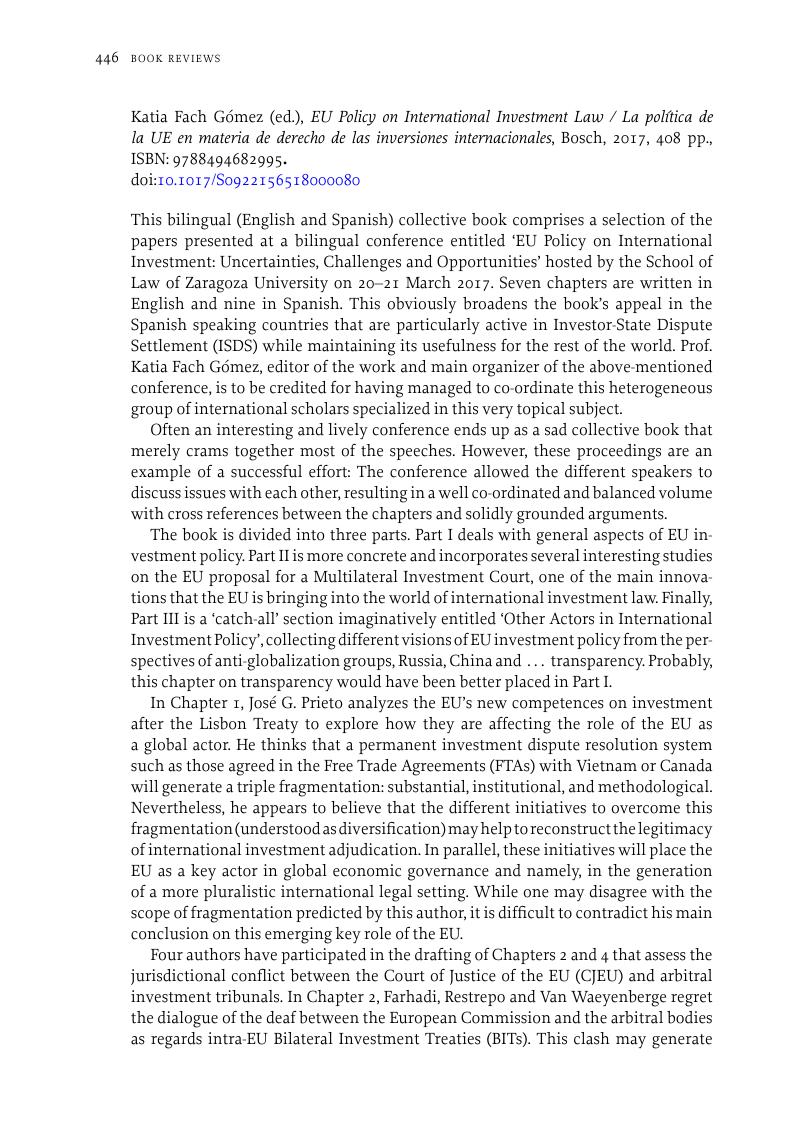No CrossRef data available.
Published online by Cambridge University Press: 26 February 2018

1 K. Fach Gómez (ed.), EU Policy on International Investment Law / La política de la UE en materia de derecho de las inversiones internacionales (2017), 67.
2 Ibid., at 86–90.
3 Ibid., at 108.
4 This possible incompatibility of the new European ISDS mechanisms with the role of the CJEU is shared by other authors in this book and by the mainstream doctrine in the field. See, for example, Reinisch, A., ‘The EU and ISDS: From Investor-State Arbitration to a Permanent Investment Court’, in de Mestral, A. (ed.), Second Thoughts: Investor State Arbitration between Developed Democracies (2017), 365Google Scholar.
5 Fach Gómez, supra note 1, at 84.
6 For a recent and clarifying study on this issue see Yiannibas, K., ‘Democratizing International Trade and Investment Agreements in the European Union’, in de la Heras, B. Pérez (ed.), Democratic Legitimacy in the European Union and Global Governance (2017), 343CrossRefGoogle Scholar.
7 A.-M. de Zayas, Report of the Independent Expert on the promotion of a democratic and equitable international order, UN Doc. A/HAC/30/44 (12 July 2016).
8 German Magistrates Association, Opinion on the establishment of an investment tribunal in TTIP, No 04/16, February 2016, available at www.foeeurope.org/sites/default/files/eu-us_trade_deal/2016/english_version_deutsche_richterbund_opinion_ics_feb2016.pdf.
9 Fach Gómez, supra note 1, at 374.
10 A. Bianchi and A. Peters (eds.), Transparency in International Law (2013), 75–220.
11 Opinion of the Court (Full Court) of 16 May 2017 (EU:C:2017:376).